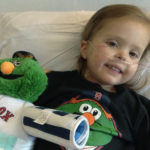A new kidney for Kira
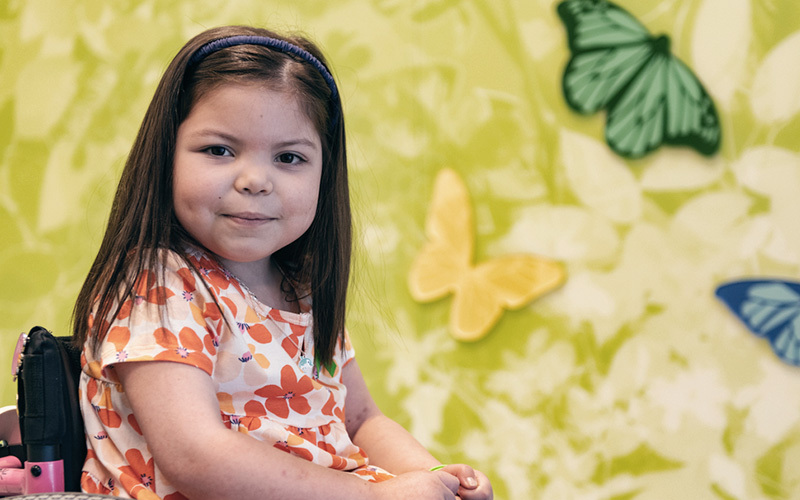
Kira Walker knows how to turn a Zoom call into a party. Soon after her mom starts talking, the 8-year-old appears on the screen in a purple dress worthy of Princess Elsa in Frozen. She loves that movie, plus surprise toys, painting her nails, and her “K for Kira” necklace.
“All of this is new,” says Kyla, Kira’s mother. Before her kidney transplant in February, Kira was often listless and had trouble following a conversation.
Around the world looking for answers
Kira was born in Japan, on the base where her father Brandon was stationed. Despite a healthy pregnancy, the delivery was complicated. Kira was born with several serious medical issues, including heart failure and kidney failure. She received dialysis — a treatment that filters blood when the kidneys aren’t working — for the first time when she was 4 weeks old. She remained on dialysis for eight years.
The Walkers moved: first to California, then Texas, then North Carolina to find appropriate care for Kira. But bad news seemed to follow them from place to place. Several times, Kira’s blood clotted around the catheter inside her body. (The catheter provided a passage for Kira’s blood to travel to and from the dialysis machine.) More than one set of doctors told Kyla and Brandon that their daughter would never be eligible for a kidney transplant due to her complex medical needs. A nephrologist told them that Kira would not make it.
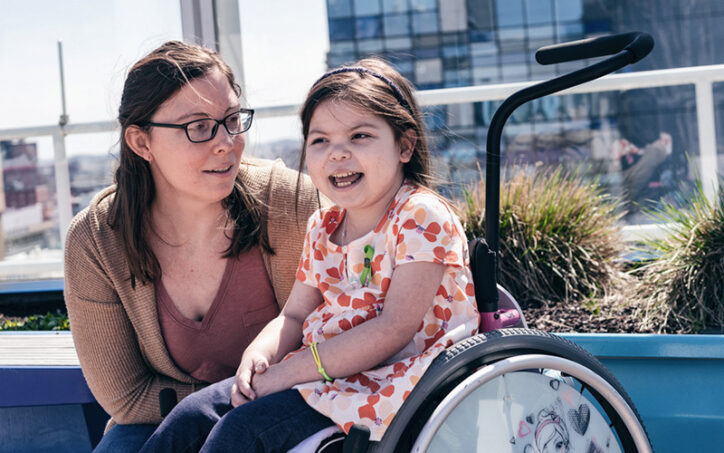
“It started to seem like our only option was to enjoy the time we had left with her,” says Kyla. Fortunately, a doctor in North Carolina suggested they might receive different advice at Boston Children’s Hospital.
A second opinion and a second chance for a transplant
Soon, Kyla and Brandon were exchanging phone calls and emails with Courtney Loper Risley, a nurse practitioner and renal transplant coordinator in Boston Children’s Kidney Transplant Program. Within a few months, Kira and her parents were in Boston, meeting with Risley, nephrologist Dr. Michael Somers, and Dr. Khashayar Vakili, surgical director of the Kidney Transplant Program.
“When they met Kira in person, they said, ‘Of course we’ll take her as a patient,’” says Kyla. Kira’s blood vessel abnormalities would indeed make her transplant more complicated. But based on their skills and experience, the team at Boston Children’s believed that a kidney transplant for Kira was technically possible.
To come here and hear a team of clinicians say, ‘We can do this — this is going to happen.’ That changed everything.”
The only hitch was that the family needed to move to Boston. Once an appropriate kidney became available, the transplant would need to take place quickly. “Boston Children’s put her on the transplant waitlist, and we moved to Boston,” says Kyla.
Kira received dialysis three times a week and the team paid close attention to her heart and blood vessels to make sure she would be in the best possible condition for a transplant. But after a year, no kidney suitable for Kira’s medical condition had become available. With COVID-19 spreading across the Northeast, the family returned to North Carolina. Kira’s name, however, remained on the waitlist.
How Kira got her kidney
Kira continued to receive dialysis for the next two years. In early 2022, she and her mother returned to Boston for what they thought would be a procedure to replace her dialysis catheter. As it turned out, the catheter did not need to be replaced, but Dr. Vakili asked if they could stay in Boston for one more dialysis treatment, just to make sure.
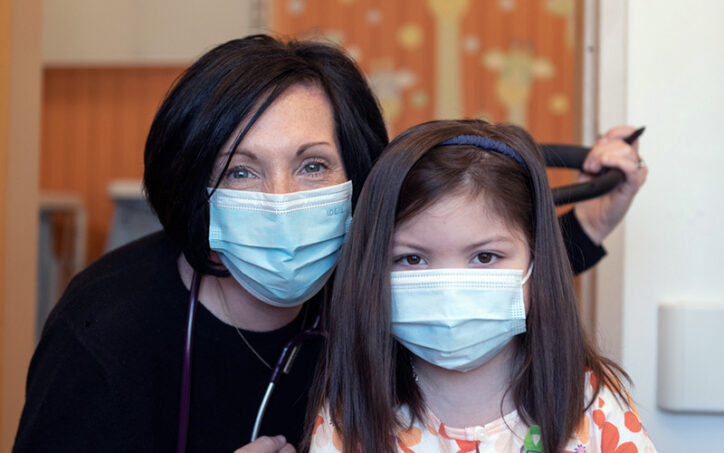
“The next morning, we got a call,” says Kyla. A kidney of an acceptable size and blood vessel anatomy, from a donor with a compatible blood type, had finally become available.
Even as their dreams for a new kidney came true, Kyla and Brandon had concerns. In her years of taking Kira to dialysis, Kyla had met many parents of young children with kidney failure. She’d seen that the road after a transplant was not always smooth. Some children remained in the hospital for a long time. Some had complications that required follow-up operations. “These were all things I assumed would happen when Kira had her surgery.”
When she voiced her fears with Dr. Vakili, he told her, in detail, how the transplant team minimized the risk of complications. “He told me about the team’s experience with children of Kira’s age and size, and the safety measures they would take with her. A transplant is a big deal, and they treated it that way.”
After her kidney transplant, Kira finds her voice
Two weeks after her transplant, Kira was released from Boston Children’s. Brandon, who had flown up for the procedure, returned to North Carolina where Kira’s siblings, Zoe and Osric, were waiting.
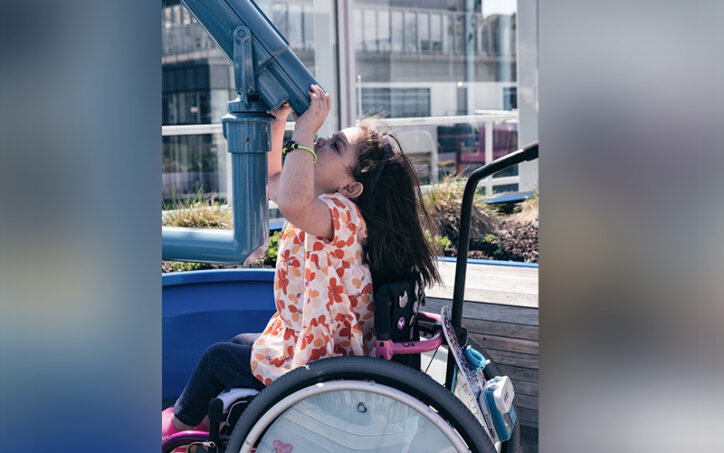
In the two and a half months since her transplant, Kira’s personality has blossomed. The once quiet child now talks up a storm. “She laughs and is silly,” says her mom. “It’s been wonderful to see.” Kira and Kyla remain in Boston for now, but if all continues to go well, will return home later this spring.
Looking back, Kyla is struck by how different their experience has been at Boston Children’s. “Other places completely denied Kira for transplant. To come here and hear a team of clinicians say, ‘We can do this — this is going to happen.’ That changed everything.”
Learn more about the Kidney Transplant Program and the Division of Nephrology.
Related Posts :
-

From Virginia to Boston for a kidney transplant: Joshy’s story
Joshy Buchheit is a lot like most 4-year-old boys. He loves playing in the mud, riding his scooter, and keeping ...
-

After a long journey and a father's gift, surviving Wilms tumor
Eleanor (Nora) Franks was a happy, healthy toddler who loved playing with her twin brother Evan. But soon after she ...
-

After a marathon year, let’s make organ donation part of our new normal
Six years ago, an organ donor saved my daughter’s life. Cora was born with a congenital heart defect called ...
-

Four things to know about your child’s kidneys
If you’re like most parents, you probably know that the kidneys filter waste from the body and produce urine. ...




